Momma Interviews "Expert Edition" featuring Lindsay Lipton Gerszt
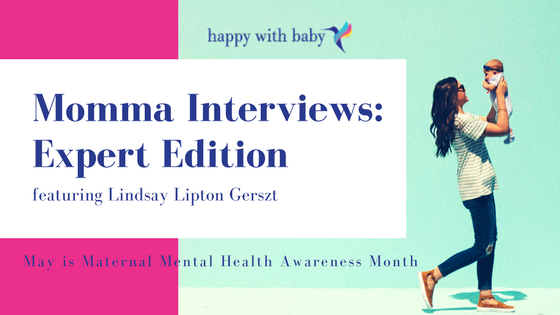
May is Maternal Mental Health Awareness Month, so I've relaunched my "Momma Interviews" series--This time with an extra special set of moms. These mommas also work to support other moms and their families during the transition into new parenthood and beyond. I'm calling it the "Expert Edition", but I think you'll find that while these women definitely are experts in their work, parenthood has a way of making a beginner out of everybody. Even experts get surprised by the unexpected and learn new bits of wisdom while in the trenches!
This series is all about their experiences with motherhood, in the hopes that it provides you with some validation and new tips to try. Because for all the many different ways there are to be a mom (and there are definitely MANY ways to do it right), it's so amazing how much we moms all really have in common.
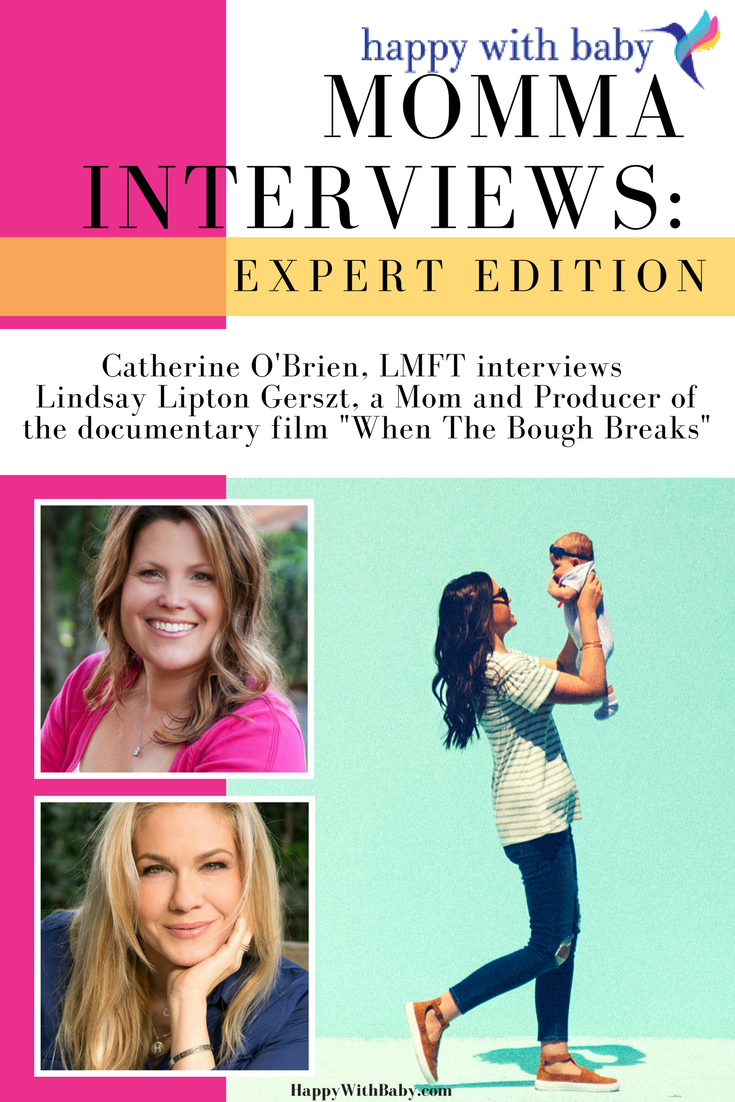
This week, I give you Lindsay Lipton Gerszt, Executive Producer of the new documentary film, When the Bough Breaks - a Documentary about Postpartum Depression. Mommas, I am so excited about this interview! Not only does Lindsay have one of those dreamy career trajectories that just makes you want to learn all about her--from Los Angeles music industry executive to documentary film producer--but she also has such an important message and story to tell. As a momma who has suffered from severe postpartum depression, she has some powerful honesty and wisdom to share.
Scroll down to watch the interview, read the transcript or learn more about Lindsay and the documentary film.
Watch the Video:
https://www.youtube.com/watch?v=FFiKGFhMjiU&w=854&h=480
Lindsay's Quotables:
Interview Transcript:
Catherine: Hi. I'm Catherine O'Brien at happywithbaby.com, and I'm so happy to be here with the executive producer of "When the Bough Breaks", a new documentary on post-partum depression and anxiety and psychosis. Lindsay Gerszt, thank you so much for being with us today.
Lindsay: Thank you for having me.
Catherine: Yeah. This is part of a series that I'm doing of expert in the Momma Interview series that I have. The first question I always start is just, can you share with us a little bit about your family dynamics, like what makes up your family home?
Lindsay: Yeah. It's me, my husband, and my son, Hunter. He's almost nine. We have a dog named Lucky. We have a very simple little family life. It's just the three of us that are very close and we're all kind of buddies.
Catherine: Awesome. That's great. Tell me about how you balance being a mom, working, and relationships, like how you do it all. How do you do that?
Lindsay: Balancing all of that is really hard for me. I have a history of depression, and plus the movie coming out, there's so much to do. I struggle with being there for my husband and being there for my son and making sure I drop him off at school and pick him up and do everything I need to do and have the house be house and have dinner ready and do all my wifely duties, and all along, trying to get everything done that I need to get done because there's really ... This movie coming out has really given me the opportunity to be an advocate in the maternal mental health field. It's just been an amazing opportunity. It's very difficult, but it's kind of just putting one foot in front of the other and getting through the day at this point.
Catherine: Yeah, yeah. I think that's all of us. Need to do that a lot of that time. Most moms I speak to say there are moments when they are ready to throw in the towel. Can you describe for me a time you felt this way and what got you through that?
Lindsay: Yeah. Like I said, my history is with depression. I had severe post-partum depression, which brought us to making this film "When the Bough Breaks". I remember holding my son when he was four weeks old and looking at him and saying, "I can't do this. I just can't do this." I didn't know how I was going to get through each day. Looking back on it now, the way I got through each day was literally one step at a time. If you can make it through that one second, and then the seconds turn into minutes and the minutes turn into hours and the hours turn into days, then all of a sudden you start seeing yourself getting better because post-partum depression, it's not a lifelong sentence. It's very hard and there's many times I wanted to throw in the towel. By just remembering just step at a time, it helps me get through it.
Catherine: Right. I think it's that one moment at a time because we think if we look so far into the future, it's so overwhelming, but if we're like, "Okay. Just right here, what's in front of me? What do I have to do at this time?" I think that's so important.
Lindsay: Yeah. You almost have to because even if you don't have depression, being a mom, whether you're a working mom, a stay at home mom, whether you have five kids or one kid, there's so much to do and there's so much responsibility. If you look at the big picture, it can get so overwhelming. If you just take a step at a time, then we're able to get through it better.
Catherine: Yeah, no, I love that, I love that. What do you do when you feel that overwhelmed, overstretched, or less than?
Lindsay: I have something that I do that I don't know if I recommend it for everybody-
Catherine: But maybe it will help one other person, right?
Lindsay: Yeah. When I get overwhelmed, I choose to take a break and I get in bed and I just take some time for myself and just zone out for a while, because sometimes when things get so overwhelming, it's almost like it's too hard to get through. If you take some time for yourself and don't do anything, have no responsibilities for that one hour or half hour or 20 minutes, then recoup and be like, "Okay, I'm ready to do this now." I literally get in bed sometimes, like when my son's at school, my husband's at work, and I'm working and I'm overwhelmed. I get in bed, put the covers over my head, and zone out for like a good little while.
Catherine: You know what? I interviewed someone yesterday and they told me basically the same thing.
Lindsay: Really?
Catherine: Yeah. She's like, "Sometimes I fall asleep for 20 minutes or like three hours, but it's what I need to like keep going. You know? That rest."
Lindsay: Yeah because can you imagine ... For the people that are able to do it, that's amazing. I personally, my brain works in an anxiety and OCD mode, so it's huge work for me to just with this film and everything, all the responsibilities, it's so overwhelmed. When I get that moment, I'm just like, "You know what? I have to shut off right now. I have to. It's for my mental health." I take the time and then I'm ready. When I'm done shutting off, I'm ready to do more, instead of just going and going and not being able to get anything done.
Catherine: Right, right. Like you're spinning versus, "Okay, I'm just going to stop and then start over."
Lindsay: Yeah.
Catherine: That's good. I think it's good. I've also had parents tell me that one of the hardest things about being a parent is the comparisons and judgements from other parents. Have you experienced that, and how do you cope?
Lindsay: I have. I think that our society now, in the Facebook world, is a really unfair place. I think that we look on Facebook and we see the beautiful pictures and of the families and the baby's born and everybody's happy and, "This is my perfect family. Look at my son's birthday. Everyone's smiling. My son's so happy." It's not reality. I think the way we see society right now with social media is not real. It really isn't. It's kind of like you can't compare yourself to anybody else because I guarantee it to you, they're going through something similar, they're going through a hard time, their child just had a meltdown before they took the pretty picture.
Catherine: Right, right.
Lindsay: I've learned that I have my own stuff. I've learned that you literally ... I could see a picture of people like, "It's my husband's and my anniversary. Best husband in the world", and they're not doing well at all. I've decided not to compare myself anymore to anybody else and just focus on myself and my family.
Catherine: Yeah, yeah. Keep your-
Lindsay: It's not healthy otherwise.
Catherine: Right, right. Keep your priorities in focus. You know?
Lindsay: Yeah.
Catherine: That's good. I know you kind of shared this, but what do you feel is your greatest personal struggle with the experience of motherhood?
Lindsay: I have a lot of struggles with motherhood. Am I good enough? Am I doing a good job? Am I going to mess him up, because mommy's depressed and having a hard time? There's a lot of struggles that I have. Then there are moments where I kind of just realize who I am and that I can't control some of these things. At the end of the day, it's made my son's and my relationship stronger, so I focus on that, I really do. It's hard. Having depression and being a mom is very hard. That's why it's so important to take time for yourself.
Catherine: Yeah. Is that part of what made you decide to do this film?
Lindsay: The film was a really easy decision. I met Tanya Newbould and Jamielyn Lippman years ago. They put out a mommy blog and they wanted to make a documentary on post-partum depression. They started interviewing moms. I emailed them and I was like, "Hey, I have a story to tell." I met with them and they interviewed me and we connected so much that later on they brought me on as a producer. We kind of made the movie from there. At the time, I didn't know that I was going to be, the film was going to follow my story and journey to recovery. We were just going with the motions and then we're like, "You know what? I have a story to tell" and this was a great way for people to follow somebody and kind of connect to somebody.
We started doing that. You don't realize while you're filming that this is actually going to come out and people are going to see it. "Oh, I'm making a movie. I'm making a documentary. Yeah, okay." This was low budget and we have the camera man today, so let's film. It was all so real. I didn't have any ... There was nothing inside of me that says I shouldn't do this. While I was doing it, I was like, "If one person sees this documentary and it helps them, then this is great and we did our job." I'm actually just so grateful I was given the opportunity to do this and how far it's come. Now that it's out and people are seeing me in my rawest moments and they're seeing these psychosis stories and and they're seeing experts and they're learning and we're breaking the stigma and we're helping moms feel less alone, it's like we did our job. That's great.
Catherine: Yeah. That's so awesome. What is something that has surprised you about being a mom? Maybe something you didn't realize you'd enjoy, something you didn't know babies or kids did, or something you didn't know could bring you so much joy?
Lindsay: I'm surprised that I'm a good mom. I really am. When I met my husband, we were sitting at dinner one night and it was like our second or third date, and he's like, "How many kids do you want?" With my history of depression, I was like, "I guess I'll have one and see how it goes because I don't know how I'm going to do." We had one and it didn't go very well for me. I had a really, really rough experience. I don't know. It just surprised me that I'm a good mom because the bond that my son and I have and the patience I have for him and the love that we have, it's like I'll do anything for that child. I didn't know that I was capable of that. That's one of my biggest achievements. It makes me want to cry every time I think about it.
Catherine: Yeah, yeah. How has your relationship with your partner changed or how has it stayed the same?
Lindsay: That's a tough one because my relationship with my husband was so volatile and awful after the birth of our son. I think for a father, when they have these expectations of having a baby and having the wife and having this life that they dreamed of, and it doesn't turn out the way they planned, something has to happen in them. My husband became ... He gained like 50 pounds after my son was born. He became very depressed and he was angry. I was angry and I was going through rage. It was really hard. Honestly, I'm not sure how we made it through, but we just celebrated our 10 year wedding anniversary-
Catherine: Congrats.
Lindsay: ... and my son's turning nine in a couple weeks. I honestly think that ... With the film coming out, my husband was interviewed, and it was the only interview that I wasn't allowed to be in except for my son's at the end. When I saw his reaction in his interview, I just saw a different side of it and it wasn't just about me, it was about him too and about our family, like, "Oh, wait a minute. There is somebody else involved here." It's like I was experiencing all this pain, but because I was experiencing all this pain, so was he. That's such an important thing to realize, that the husband's go through this too. After I saw the film complete and my husband's interview, it really brought up a conversation between us, and now we're on a really good path. Year 10 we're much better.
Catherine: Good. I think it is. It doesn't just affect mom. It affects the whole family. I think that's so important to remember and like how do we help the family.
Lindsay: I literally understand why some marriages don't make it after post-partum depression. It's such a hard thing to go through. There's kind of nothing worse than mental illness because it's like you're stuck in your head and you're stuck with this way that you are that is not who you are. You don't have much control over it until you start getting better. The family has to deal with it. It's so hard. I suffered from post-partum depression for years. It's so hard to have a good relationship going through that. My husband had to go to therapy because of it and that helped him a lot, but it's so important for the husbands to take care of himself too, or the partner to take care of himself.
Catherine: Right. Self-care is so important.
Lindsay: Yeah.
Catherine: The next question is, how has your relationship with your friends, family, or support system changed, or how has that stayed the same?
Lindsay: When I first was suffering from post-partum depression, I had a friend come over and she sat with me and she said, "I'm going to take off for a little while. I can't be friends with you right now. It's too hard for me to be around you", and that was it. That was my best friend at the time. I lost a lot of friends when I was going through it, so did my husband, because we weren't social, we didn't go out with anybody. No one wanted to be around us. We didn't want to be around anybody because we were a mess, so I lost a lot of friends.
My family was supportive, but they don't live where we live, so I didn't have a support group. I didn't have anybody to help me. We were fortunate enough to hire a doula. That helped me. That was good support in the evenings, except for on the weekends, for a few months. A lot of people can't do that, and that was a big help for me because I wasn't able to stay up during the nights. I had to be medicated to sleep, and so my husband had to help too on the weekends. Sometimes even I slept on my son's floor in his nursery when we didn't have help just so I could get sleep and know that I'm with him. It was crazy.
Now what I learned because I lost so many friends and didn't have the support then ... I've made such good friends now who know all about me and know my history, and I have this amazing support system now. They are there for me. When I'm going through a hard time, they're there for me. With this film and the process, they're there and they're supporting me and I support them and it's this amazing friendship we have now. I never had that before. I appreciate it so much more now because I didn't have it when my son was little, so now it's great.
Catherine: How did you meet those friends? I know one of the things that comes up with my clients that I see and just moms in the community and stuff, it's like how do you find that community of support, especially if, like you said, you didn't have that around where you were, you didn't have the family. I know I have a lot of moms that I work with that don't have family local.
Lindsay: I'll tell you how I have the support now, but I also want to say that if you struggle from postpartum depression, joining a support group is so important and so good. When my son was six weeks old, i went to a Mommy and Me, and I was so not well and I had nobody and I was just driving my crying baby and he was sick and everything, and I went there and everyone went around the room and said, "I'm so and so and my son's this and my daughter's this and everything's great and I'm breastfeeding." They got to me and I said, "Hi. I'm Lindsay Gerszt and my son's six weeks old and he has reflux and he cries all day and I have severe post-partum depression." Everyone just kind of stopped and it was like all of a sudden, they were all supporting me. What happened was, they all started opening up and being like, "Oh my god. I think my child has colic." When you speak and speak the truth, people open up. That creates a support system there.
The reason why now I have a good support group is because my son's in this great school, he's in elementary school with these awesome kids and awesome parents, and they've become my close friends. They know everything. I'm not walking around like I was when I had him being all depressed, but they know I struggle and they're there for me and I'm there for them.
Catherine: That's awesome. That's awesome. Thank you for sharing that.
What is the greatest lesson you've learned as a mom?
Lindsay: The greatest lesson that I learned as a mom is patience.
Catherine: Yeah. That's a good one.
Lindsay: I really have. I think for any mom it's hard to be patient because having a child or children, it's a lot of work. It's very easy to just think about yourself and think about the things that you have to do. My son is so amazing and special. He's like this old soul and he talks a lot and he wants to do a lot and he wants to be with us a lot. There's nothing more than I want for him to grow up knowing how much we love him. I'm aware of that and I sit there and I listen and I talk. We spend time together because that time, before we know it, they're going to be 18 and going off to college or job or anything and they're not going to need us anymore. I really think about that. I literally just choose to have a lot of patience with him and kind of enjoy each moment.
Catherine: Yeah, yeah. Do you have a favorite quote that inspires you as a mom?
Lindsay: Yeah. It's, "Embrace the glorious mess that you are."
Catherine: I love that.
Lindsay: By Elizabeth Gilbert.
Catherine: I love that, I love that.
Lindsay: Yeah. It's an important one.
Catherine: Yeah. How about a favorite song that inspires you as a mom?
Lindsay: Yeah. It kind of goes with that. It's "Welcome to the Jungle" by Guns N' Roses.
Catherine: I love that song.
Lindsay: Yeah. My son and I blast it every day while we ride to school. We have a doormat that's in front of our house that says, "Welcome to the jungle." I took my son ... My son's favorite band is Guns N' Roses so we went to the concert and we rocked it. "Welcome to the Jungle", that's my song.
Catherine: Yeah. That's cool. This is a new question I recently added to the interview is, what is that "can't live without it" gadget or product that has made mom life easier for you or better for you or just it's cool?
Lindsay: That's a hard one for me. I don't use gadgets, but the one thing that has made life easier is Instacart. Do you know what Instacart is?
Catherine: I don't know. I recently heard about it, but I don't know what it is yet.
Lindsay: I don't go shopping anymore. I don't go shopping anymore. Instacart is this ... You literally go on the app and you can go to Whole Foods, Ralph's, anywhere you want, Petco, because I have a dog, and you place your order and they deliver your food to your door within two hours. My life just got so much easier because I don't need to go food shopping.
Catherine: All those things. They're just coming out with more and more little handy things like that. I think those are like perfect for, especially like-
Lindsay: It's amazing because I dreaded going to the supermarket twice a week. If my son feels like sushi that day and I'm doing a grocery shopping on Instacart, I'll just order him sushi and there's dinner.
Catherine: Awesome. That's cool, that's cool. Okay. Final question is, what is one piece of advice you'd like to give other moms?
Lindsay: One piece of advice I'd give other moms is to take pictures and remember the little moments. In the film ... I didn't remember my son being a baby, so in the film, there was the first time I open up this box that I kept of pictures and videos and little things from when he was a baby, and I opened it up and I looked at the pictures and I was like, "Oh my god. I'm smiling in this picture. I don't remember being happy, but I was. That was one of the hardest times in my life and look, I'm happy, I'm throwing a birthday party, and I'm doing this." What it does is it makes you remember that it wasn't all hard. There are good moments even through the bad times. I think that's really important because we can think about like, "Oh my god. That was the hardest time in my life", and have that be embedded in our brain, but that's not what it was. There was all these other moments.
Catherine: Yeah. That's so great. Is there anything else you'd like to share, either about your film or just post-partum mood and anxiety disorders in general?
Lindsay: Yeah, I do. Post-partum depression ... Perinatal mood disorders is a big range. It ranges from the baby blues to psychosis. They're all very different. If you're suffering, there is help. There's an organization called Post-Partum Support International and they have a website, postpartum.net, and they have a warm line you can call and someone will call you back. You can message them, someone will call you back and help guide you and give you resources. It's so important to talk about it. Our film will educate, it will break the stigma of post-partum depression and mental health, and it will help you feel less alone in your struggles. It's okay to go through struggles and talk about it. It's really okay. We need to break the stigma and not really care what people think anymore and take care of ourselves.
Catherine: Mm-hmm (affirmative). I just keep thinking back to what you said when you were at that moms group and where you said like, "Hey, this is what's going on for me", and then all the other moms started opening up. I think so often we try to act like we're okay and we don't tell someone until they start to tell us, and so how powerful that is to share your story. Every single time, I'll hear moms share a story in a support group or a therapy group or something, and there's always another mom that says, "Oh my gosh. I feel that same way." Them saying something ... They're always afraid, like, "I'm the only one that feels this way", and there almost always there's another mom that's like, "Oh my gosh. I feel that same way. That happened to me." We aren't alone in this. There's always somebody that understands where you're coming from.
Lindsay: Yeah. Since the film has come out, the amount of people that have opened up that have watched it is amazing. That's literally the best thing in the world for us. You're struggling, you're not talking about it and you saw our film and you saw a bunch of people that look like you, sound like you talk about it, that have a similar life talk about it, and that opens you up. How amazing is that? Now you're going to go get help.
Catherine: Mm-hmm (affirmative).
Lindsay: It's so important. I really hope ... This film is not just for moms suffering. This film is for educators, for hospitals, for support groups, everybody should see this film because if one in five women suffer from a perinatal mood disorder, you're going to know somebody that has it or you will know somebody that has it.
Catherine: Yeah, yeah. Thank you. Thank you so much for being here. The link to the documentary is in the show notes and everything, so please check it out. Such a powerful film. I'm so glad you could be with us, Lindsay.
Lindsay: Thank you so much. I really appreciate it.
Catherine: Thank you.
Lindsay: Bye.
About Lindsay Lipton Gerszt:
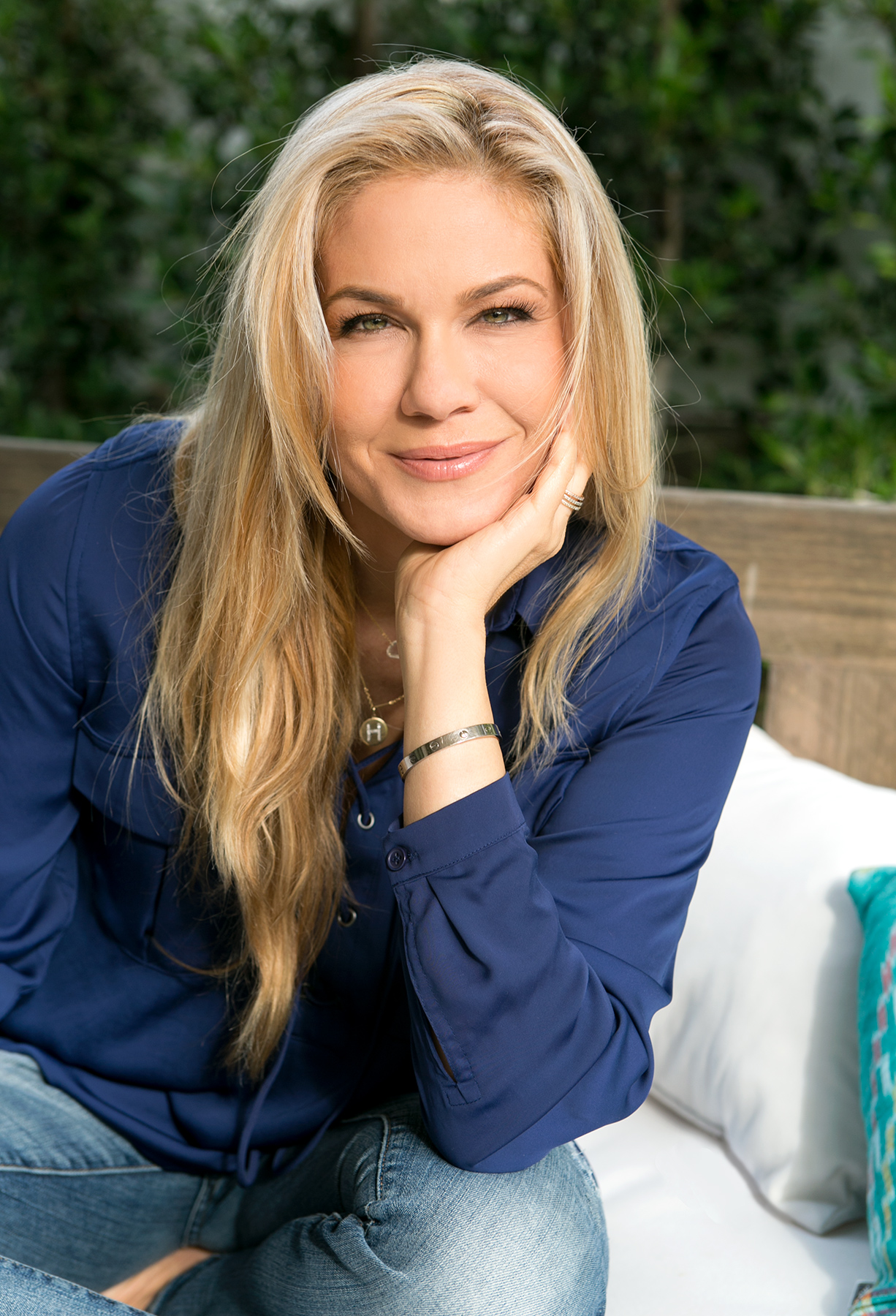
Lindsay Lipton Gerszt was born and raised in Miami, Florida. In 1997, she graduated with a BA from the University of Miami, where she majored in Communication and Sociology. Because of her love for music and the arts, in 1997, she began her career in Los Angeles at Capitol Records doing A&R. In 1999, she worked at MCA records and in 2003 she worked as a music manager at The Firm. Lindsay had the pleasure of working with, managing and doing PR for some of the biggest artists in the music industry.
In 2007, she stepped back from the music industry to begin her family. It was at this stage in her life that she came face to face with postpartum depression. She has now committed herself to raising awareness for PPD, it's many faces and the path to a healthy life and family. Her commitment to PPD has included working on the important documentary...When The Bough Breaks - a documentary about postpartum depression. This work has included fundraising, producing and telling her story, along with helping other women tell their story. This work has become her passion.
Connect with Lindsay:
Website: https://www.whentheboughbreaksfilm.com/#/
Instagram: @whentheboughbreaksdoc
Twitter: @boughbreaksdoc
Find the documentary online on Netflix and iTunes.
Subscribe
Sign up to get the latest weekly blogs sent straight to your inbox


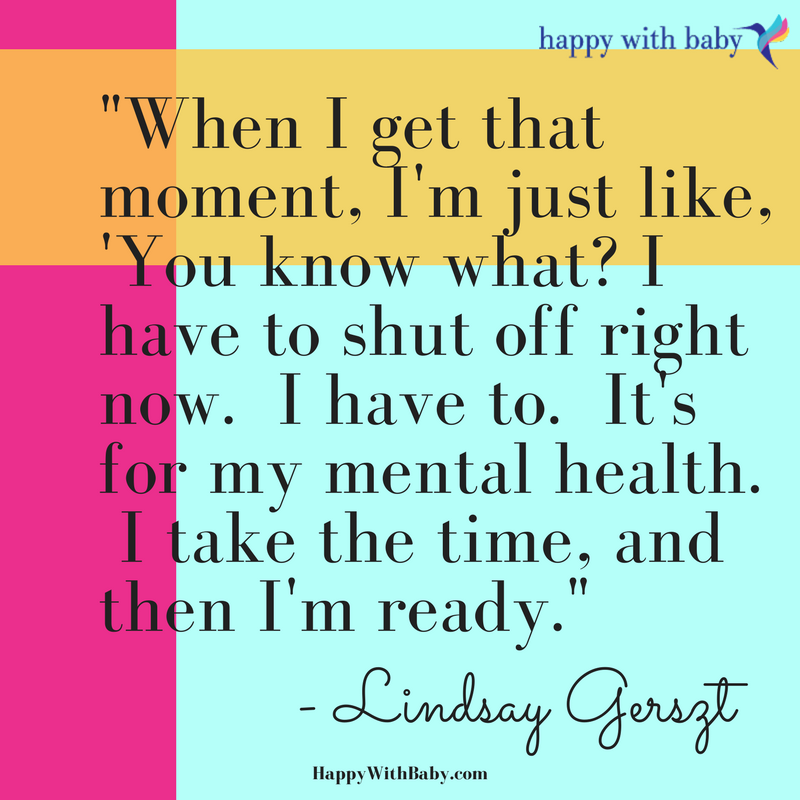
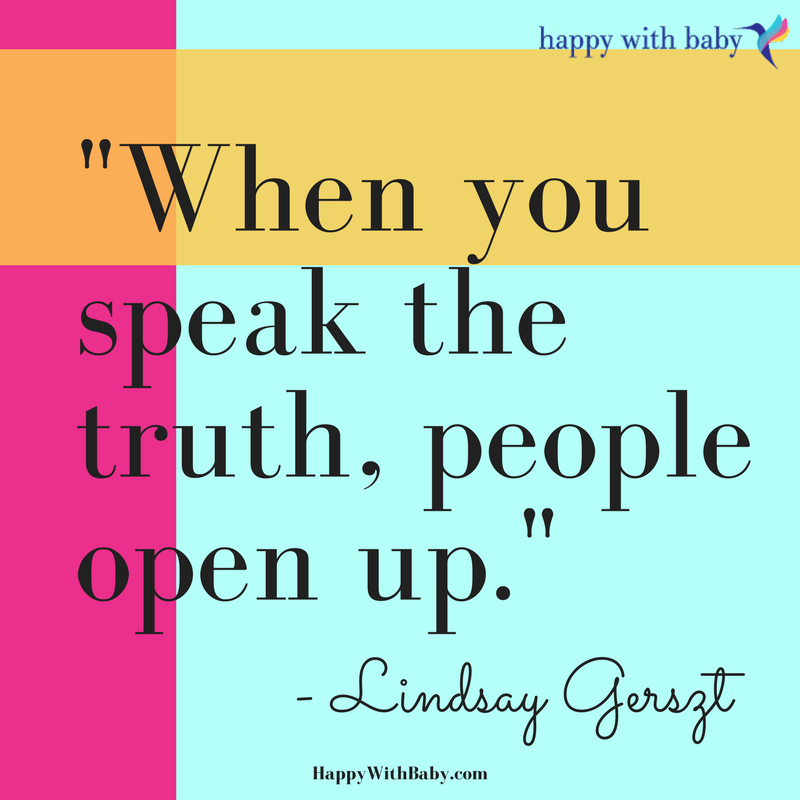
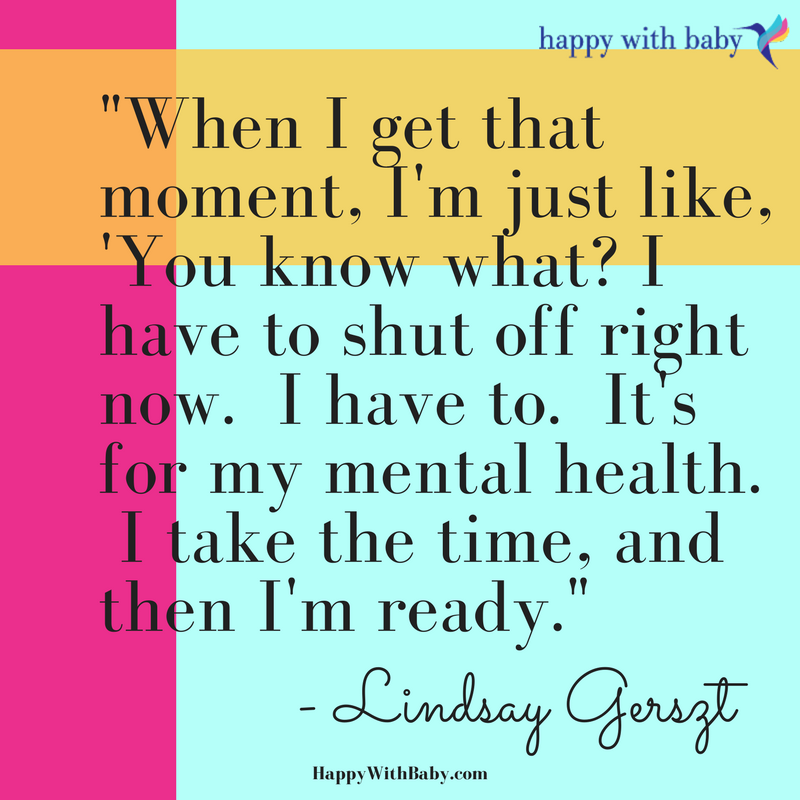
0 comments
Leave a comment
Please log in or register to post a comment